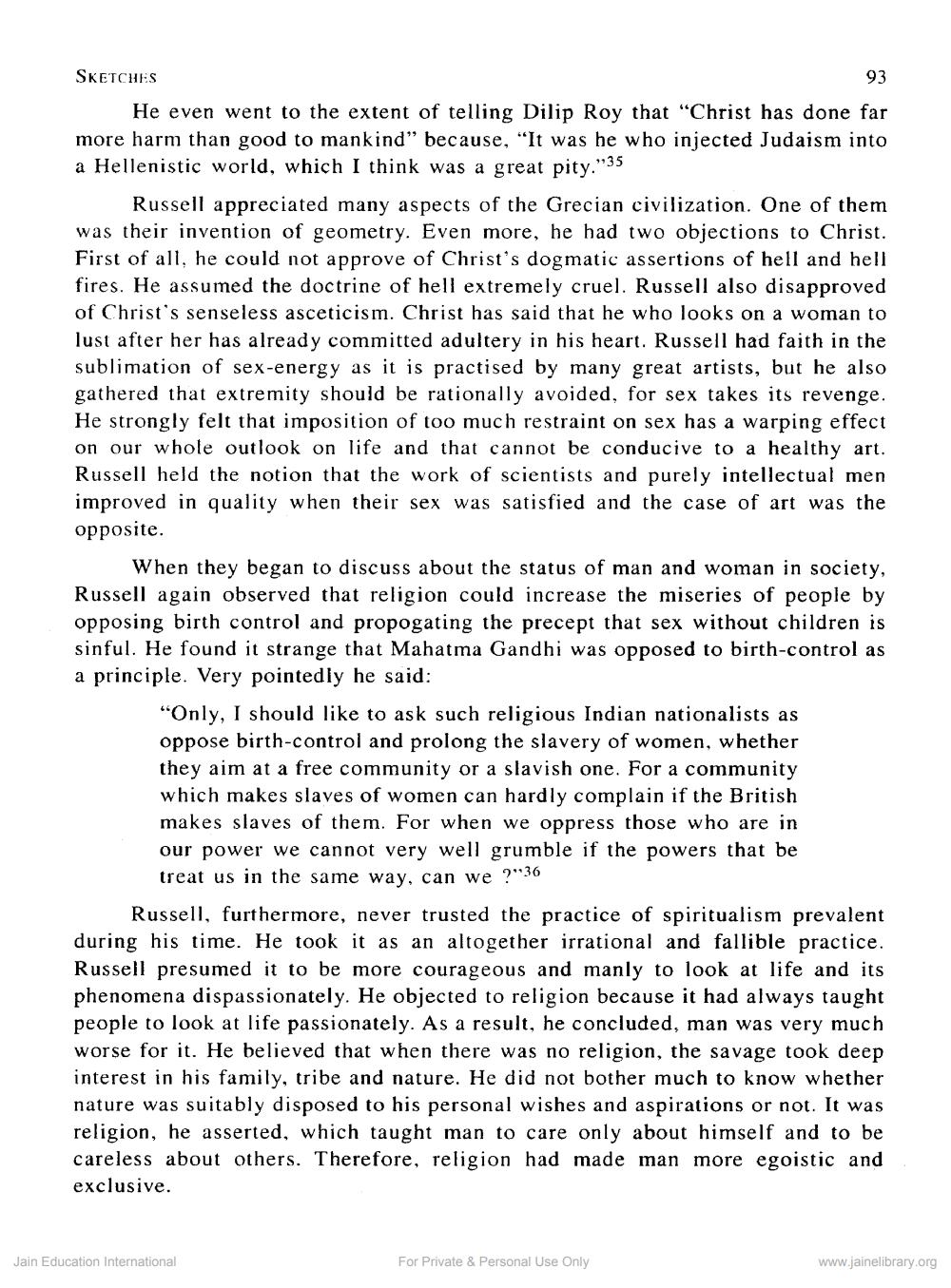________________
SKETCHES
93
He even went to the extent of telling Dilip Roy that "Christ has done far more harm than good to mankind" because. "It was he who injected Judaism into a Hellenistic world, which I think was a great pity."35
Russell appreciated many aspects of the Grecian civilization. One of them was their invention of geometry. Even more, he had two objections to Christ. First of all, he could not approve of Christ's dogmatic assertions of hell and hell fires. He assumed the doctrine of hell extremely cruel. Russell also disapproved of Christ's senseless asceticism. Christ has said that he who looks on a woman to lust after her has already committed adultery in his heart. Russell had faith in the sublimation of sex-energy as it is practised by many great artists, but he also gathered that extremity should be rationally avoided, for sex takes its revenge. He strongly felt that imposition of too much restraint on sex has a warping effect. on our whole outlook on life and that cannot be conducive to a healthy art. Russell held the notion that the work of scientists and purely intellectual men improved in quality when their sex was satisfied and the case of art was the opposite.
When they began to discuss about the status of man and woman in society, Russell again observed that religion could increase the miseries of people by opposing birth control and propogating the precept that sex without children is sinful. He found it strange that Mahatma Gandhi was opposed to birth-control as a principle. Very pointedly he said:
"Only, I should like to ask such religious Indian nationalists as oppose birth-control and prolong the slavery of women, whether they aim at a free community or a slavish one. For a community which makes slaves of women can hardly complain if the British makes slaves of them. For when we oppress those who are in our power we cannot very well grumble if the powers that be treat us in the same way, can we ?"36
Russell, furthermore, never trusted the practice of spiritualism prevalent during his time. He took it as an altogether irrational and fallible practice. Russell presumed it to be more courageous and manly to look at life and its phenomena dispassionately. He objected to religion because it had always taught people to look at life passionately. As a result, he concluded, man was very much worse for it. He believed that when there was no religion, the savage took deep interest in his family, tribe and nature. He did not bother much to know whether nature was suitably disposed to his personal wishes and aspirations or not. It was religion, he asserted, which taught man to care only about himself and to be careless about others. Therefore, religion had made man more egoistic and exclusive.
Jain Education International
For Private & Personal Use Only
www.jainelibrary.org




